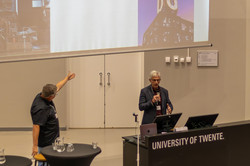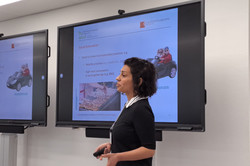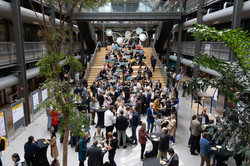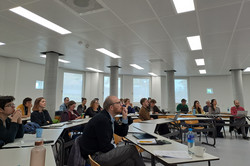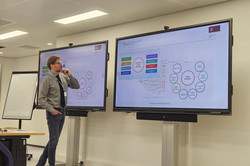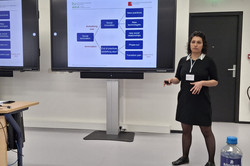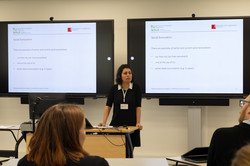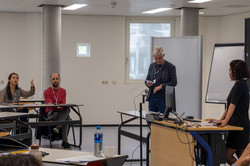2025
Eu-SPRI conference 2024 discusses science, technology and innovation for better worlds
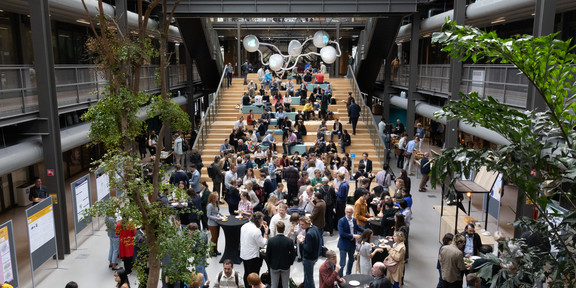
The European Forum for Studies of Policies for Research and Innovation (Eu-SPRI) has been bringing together interdisciplinary innovation research since 2010 in order to explore a variety of questions relating to the design and implementation of innovation policy in various sectors, political levels and countries.
In addition to the 38 conference tracks, two keynote speeches and several panel discussions shed light on the directionality of science, technology and innovation. Eefje Cuppen (Rathenau Instituut/ University of Leiden, NL) gave the first keynote, which emphasised the pluralisation of values in society on the one hand and the required transformation of universities themselves on the other hand. In his keynote speech, Douglas K.R. Robinson (OECD) reported on key OECD publications dedicated to science, technology and innovation addressing societal challenges and gave insights into the policy consultations and discussions leading to them.
The Social Research Centre has been part of this European research network since 2018 and places the topic of social innovation in the often technology-oriented research discourse. The increasing focus of research and innovation policy on solving societal challenges and the associated mission-orientation of these have also contributed to the topic of social innovation gaining relevance in this research community. Conference track 3 "Social innovations for a better world? A critical look at their ambivalences and side effects ", organised by sfs researchers Prof. Jürgen Howaldt, Dr Rick Hölsgens and Dr Karina Maldonado-Mariscal together with colleagues from six other research institutions proved to be a key topic at this year’s conference. It focussed on the question to which extent social innovations and supporting innovation policy can adequately solve social challenges, what diffusion logic they follow and whether undesirable side effects occur in these processes. The 13 contributions to the track presented both empirical case studies and conceptual considerations. Dr Douglas Wegner and Prof Jürgen Howaldt opened the track and focused on digital ecosystems of social innovation. In their presentation, Dr Rick Hölsgens and Dr Karina Maldonado-Mariscal addressed social exnovation that describe the intended termination of practices. In her presentation, Marthe Zirngiebl presented initial ideas on the problem constitution underlying social innovations, building on joint considerations with Dr Jennifer Eckhardt. In a further contribution, Dr Rick Hölsgens pointed out how different understandings of social innovation can influence and hamper cooperation.
Prof. Jürgen Howaldt concluded the conference by inviting the participants to Dortmund, where the Eu-SPRI conference will take place from 11-13 June 2025 under the guiding theme "Shaping Societal Futures with STI Policies".
Further information: https://www.utwente.nl/en/euspri2024/




![[Translate to English:] [Translate to English:]](/storages/zentraler_bilderpool/_processed_/a/f/csm_Kontakt_b86e8d8ecc.png)
![[Translate to English:] [Translate to English:]](/storages/sfs-sowi/_processed_/7/e/csm_header_collage_sfs_eving_sozialforschungsstelle_dortmund_31bd3c09fb.jpg)
